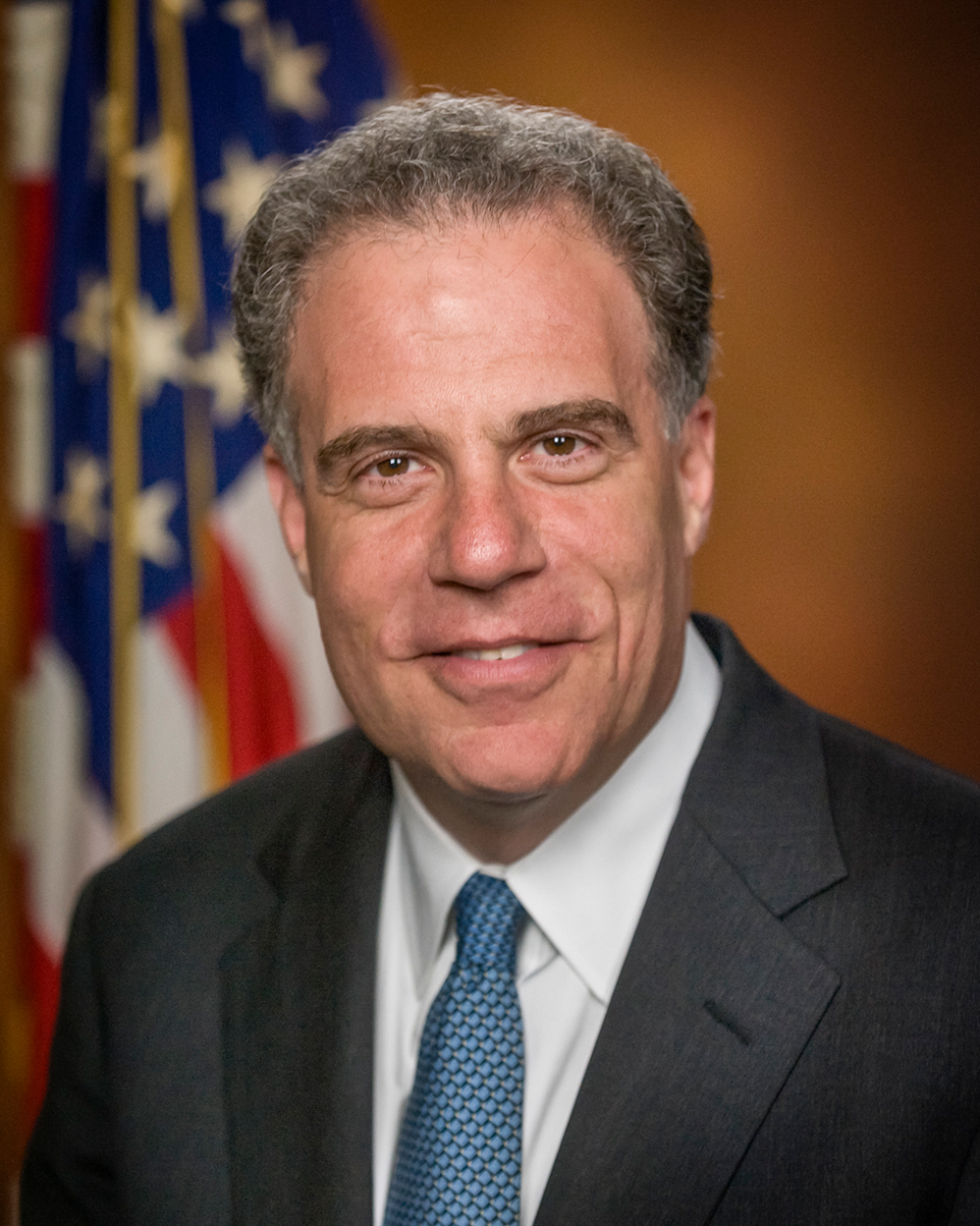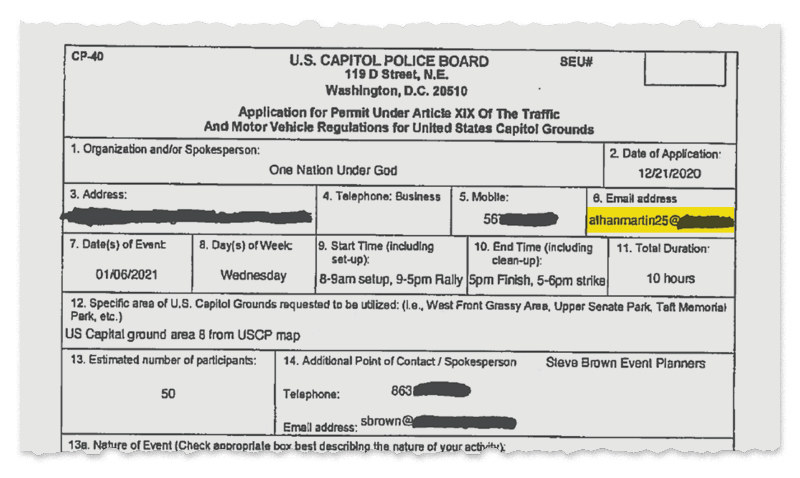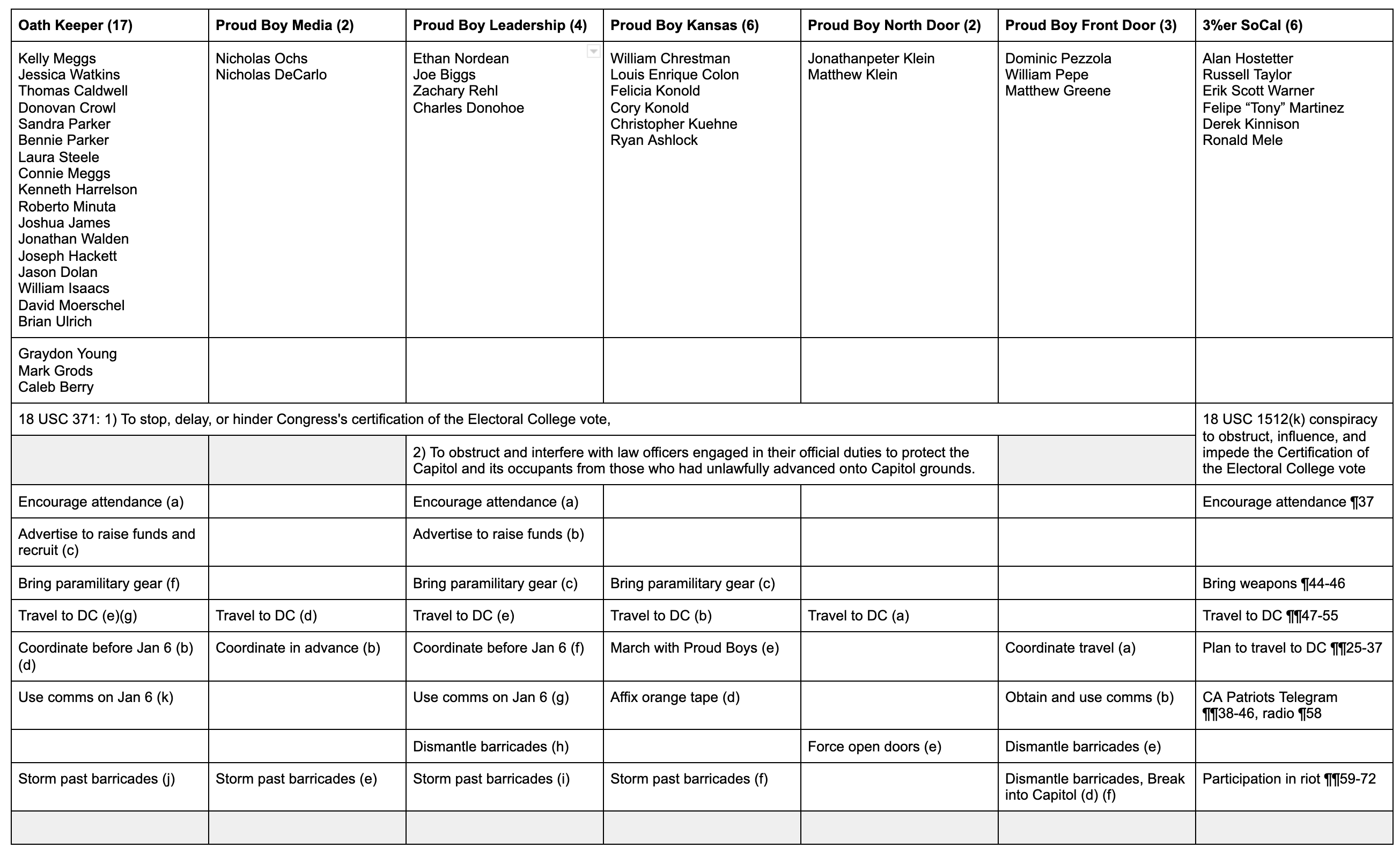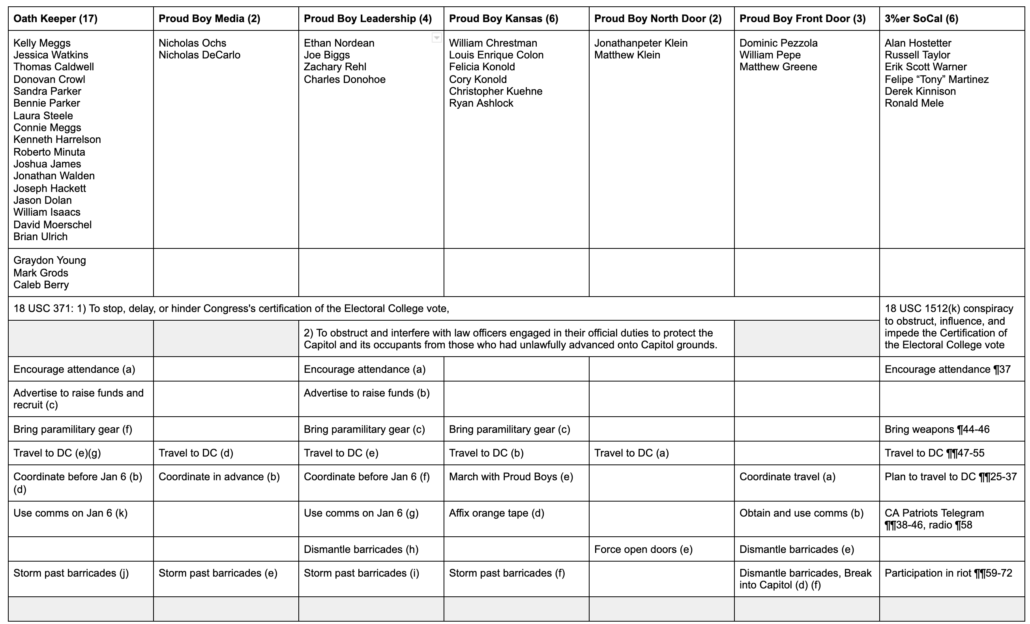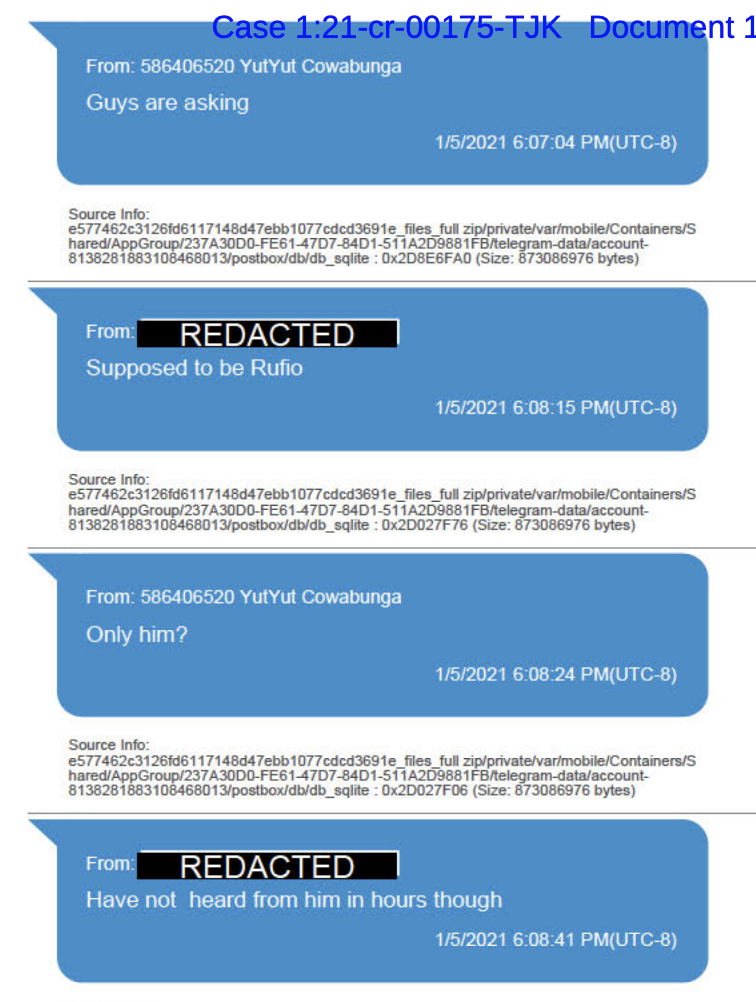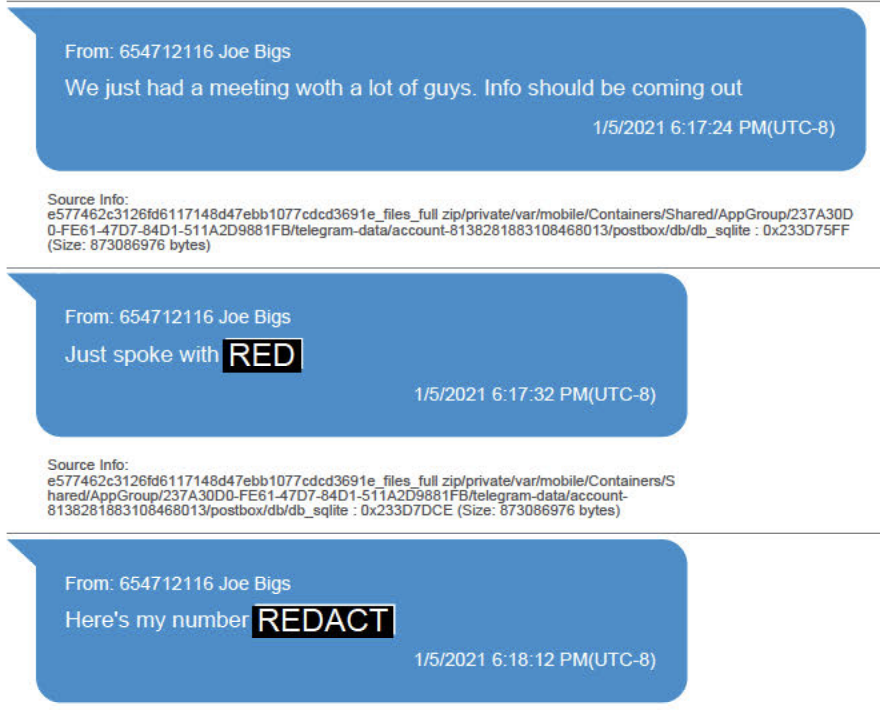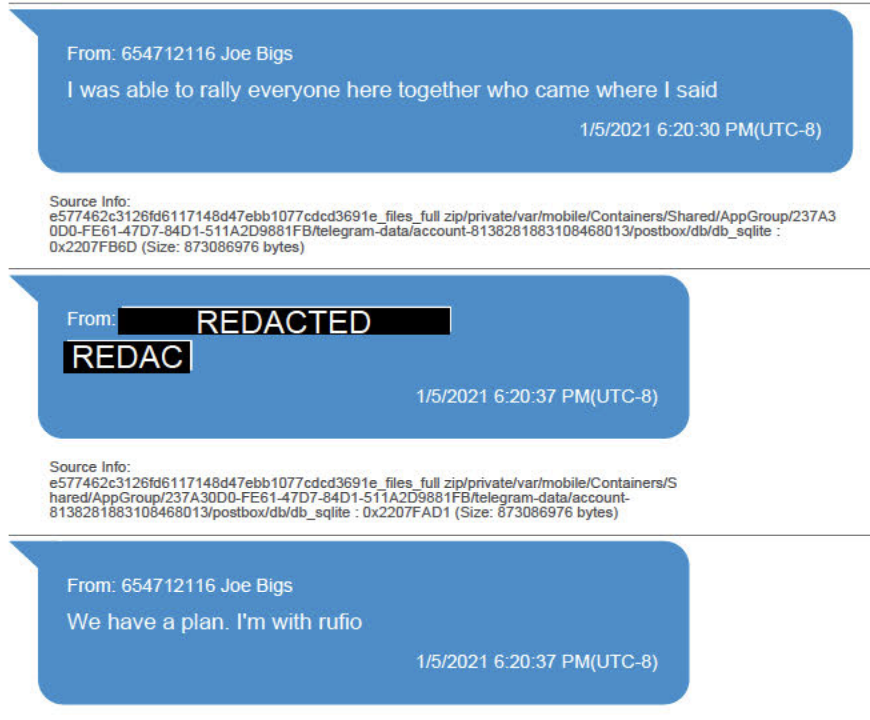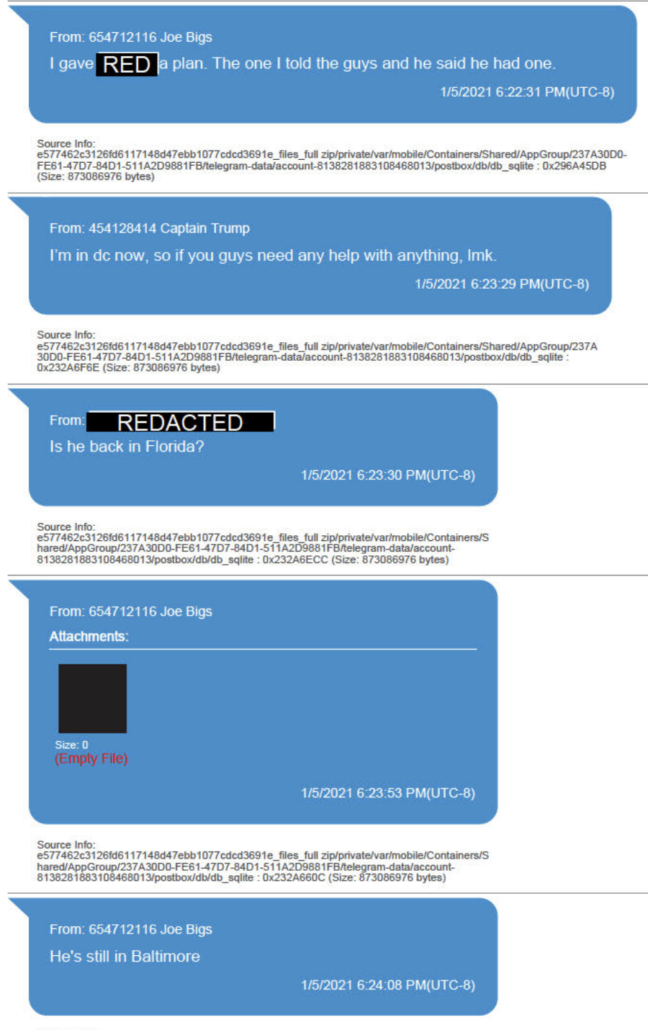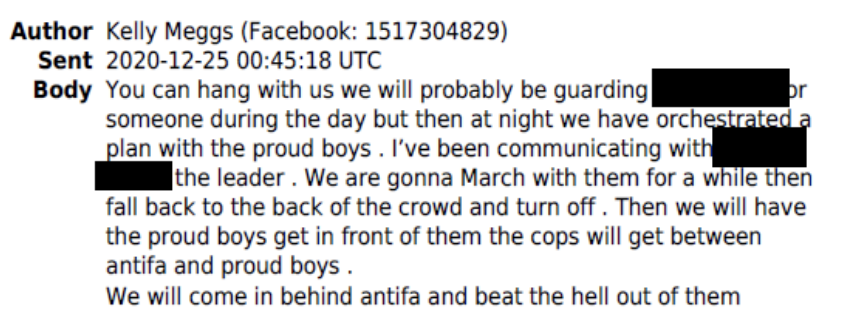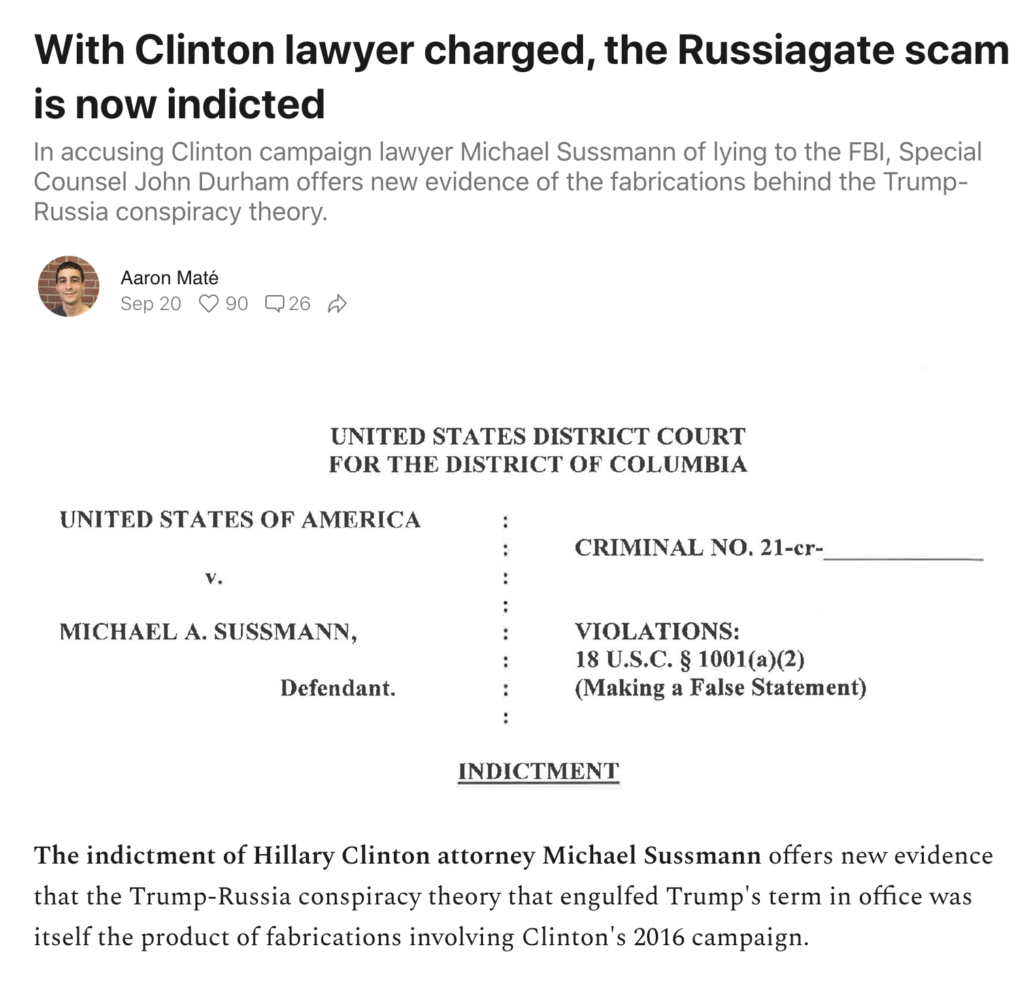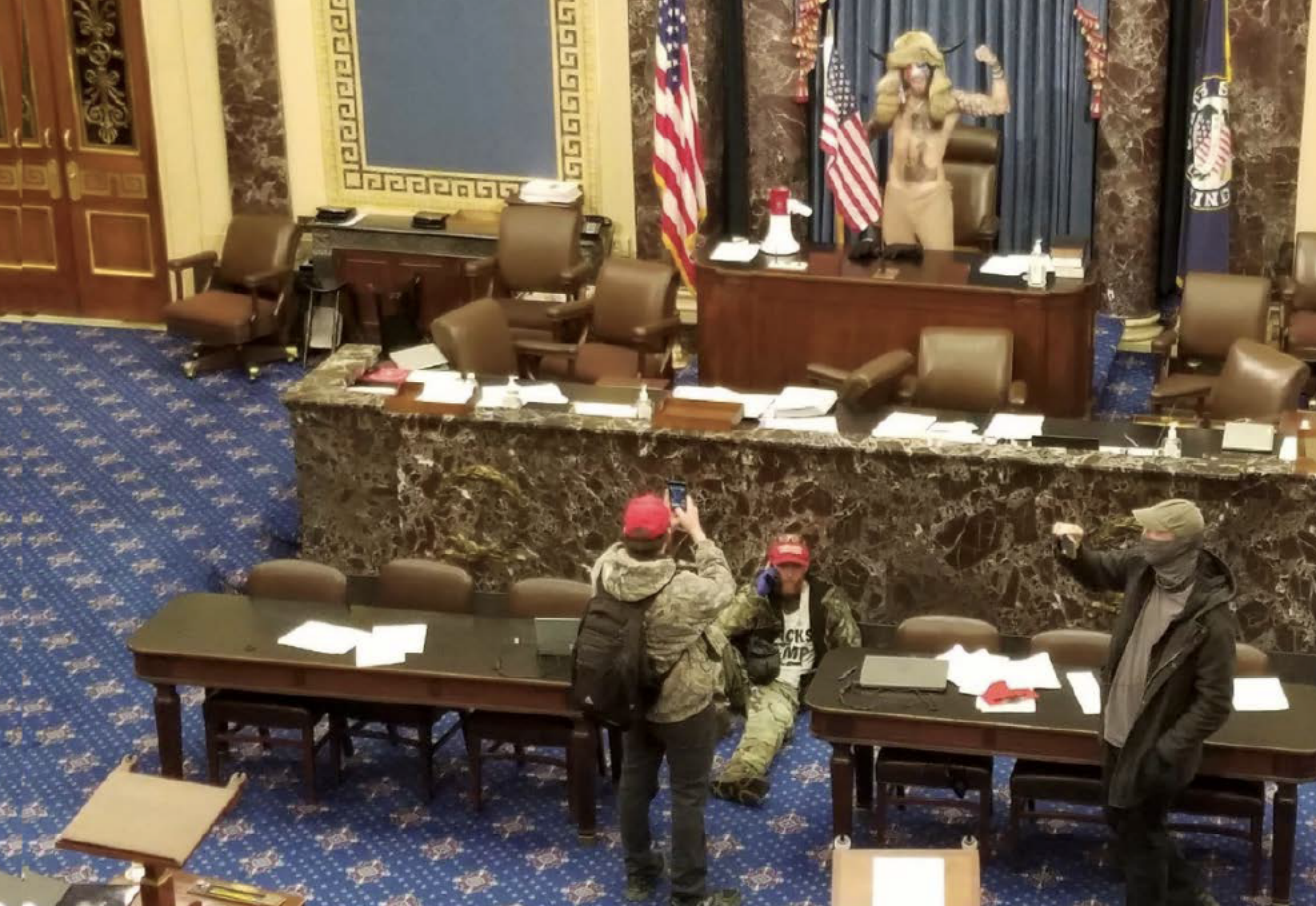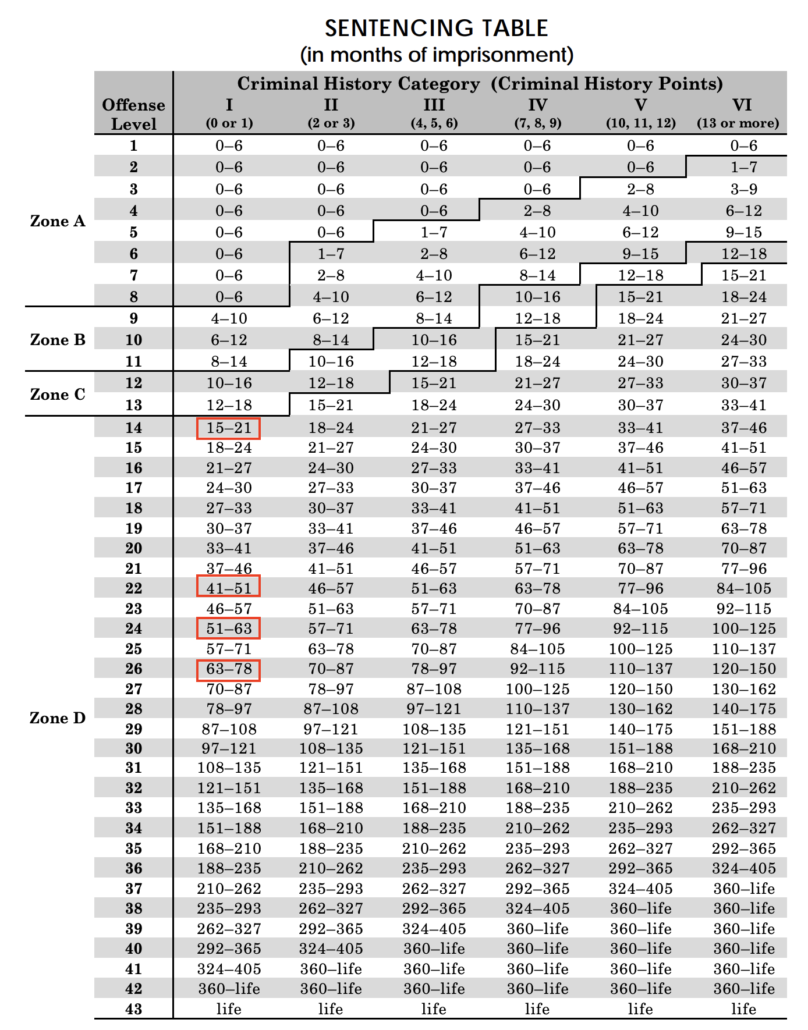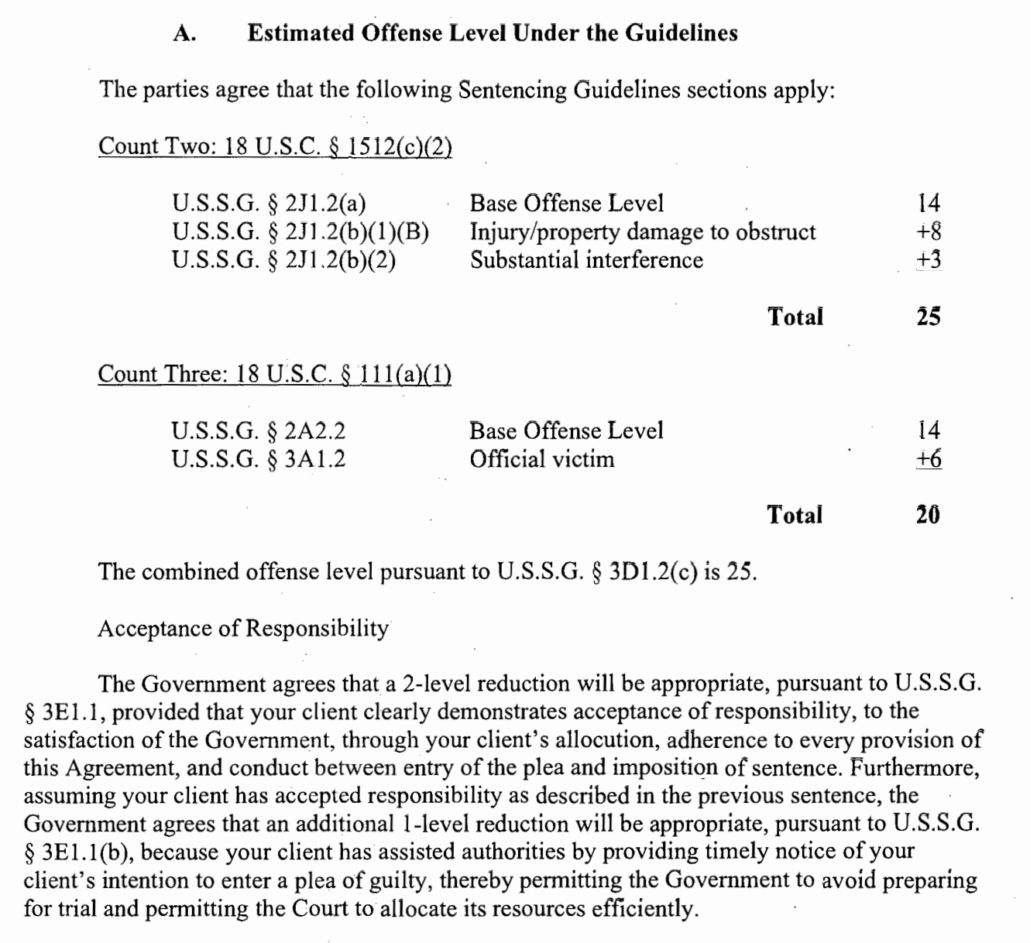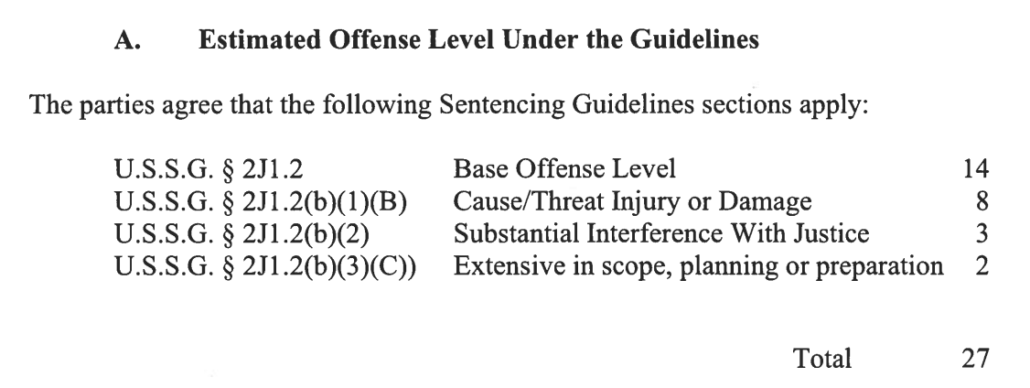Michael Sussmann Attempts to Bill [of Particulars] Durham for His Sloppy Indictment Language
“Without prejudice to any other pretrial motions”
Michael Sussmann’s lawyers reserve their right to challenge the Durham indictment of Sussmann via other pretrial motions in their motion for a Bill of Particulars six different times. The motion does so three different times when noting that Durham used squishy language to paraphrase Sussmann’s alleged lie and couldn’t seem to decide whether he affirmatively lied or lied by omission.
Mr. Sussmann is entitled to understand which particular crime he must defend himself against. Without prejudice to any other pretrial motions Mr. Sussmann may bring on the matter, Mr. Sussmann is also entitled to additional particulars regarding the alleged omissions in the Indictment, including regarding the legal duty, if any, that required him to disclose the allegedly omitted information the Indictment suggests he should have disclosed.
[snip]
The Special Counsel should be required to clarify which crime he believes Mr. Sussmann committed and, to the extent the Special Counsel is proceeding on an omissions theory, he should be required to provide additional particulars (without prejudice to any motions Mr. Sussmann may make later).
[snip]
To the extent that the Special Counsel believes the Indictment is alleging a material omission under Section 1001(a)(1), and without prejudicing any other motions Mr. Sussmann may make on this issue, the Special Counsel should be required to clarify: (1) what specific information Mr. Sussmann failed to disclose; (2) to whom he failed to disclose it; (3) what legal duty required Mr. Sussmann to make the required disclosure; and (4) why the omission was material. See United States v. Safavian, 528 F.3d 957, 964 (D.C. Cir. 2008). [my emphasis]
It does so twice when asking that Durham address problems with his claims that Sussmann’s alleged lie was material.
The Indictment does make several allegations regarding materiality, and yet these allegations are vague, imprecise, and inconsistent. Suggesting the FBI might have asked more questions, taken other steps, or allocated resources differently, without specifying how or why it would have done so, leaves Mr. Sussmann having to guess about the meaning of the allegations that the Special Counsel has leveled against him. Accordingly, without prejudice to any pretrial motions Mr. Sussmann may make regarding materiality, Mr. Sussmann requests that the Court order the Special Counsel to provide more detail about why the purported false statement was material.
[snip]
Accordingly, without prejudice to any pretrial motions Mr. Sussmann may make regarding materiality, Mr. Sussmann requests that the Special Counsel be ordered to provide more detail about why the purported false statement was material. See Fed. R. Crim. P. 7(c)(1). [my emphasis]
And the motion does so again when pointing out that Durham hasn’t included specifics about another alleged lie, to just two of an unidentified number of people who attended a meeting at CIA, which Sussmann elsewhere describes as improper inclusion of 404(b) material in an indictment.
Without prejudicing any other motions Mr. Sussmann may make on this issue, the Special Counsel should first be required to clarify the false statement alleged to have been made to the two anonymous Agency-2 employees, and any other individuals present at the meeting, in February 2017. [my emphasis]
A list of things John Durham didn’t provide in his Michael Sussmann indictment
It’s only after making it clear that this is just his opening move before filing a motion to dismiss and other legal challenges to the indictment…
The Indictment is seriously vulnerable to challenge as a matter of law, and Mr. Sussmann will make relevant pretrial motions at the appropriate time. For now, Mr. Sussmann moves for a bill of particulars.
…that Sussmann lays out a list of things he claims he can’t figure out from Durham’s sloppy indictment:
For the foregoing reasons, this Motion for a Bill of Particulars should be granted, and the Court should order the Special Counsel to promptly:
A. Provide particulars regarding the specific false statement the Special Counsel alleges Mr. Sussmann made to Mr. Baker, namely:
1. The exact words of Mr. Sussmann’s alleged false statement;
2. The specific context in which the statement was made so that the meaning of the words is clear;
3. What part of the statement is allegedly false, i.e., whether the statement was false because Mr. Sussmann allegedly stated he was not “acting on behalf of any client in conveying particular allegations concerning a Presidential Candidate” as alleged in Paragraph 46, or if he falsely stated that he was not doing any “work” on behalf of a client more generally, as alleged in Paragraphs 4, 27(a), 28;
4. What is meant by “his work,” as referenced in Paragraph 4;
5. What is meant by “acting [or acted] on behalf of any client” as alleged in Paragraphs 27(a) and 30; and
6. What “this” refers to in the Assistant Director’s notes referenced in Paragraph 28.
B. Provide particulars regarding the statutory violation charged and, if applicable any alleged omissions, namely:
1. Which crime the Special Counsel believes Mr. Sussmann has committed; and
2. To the extent the Special Counsel alleges that Mr. Sussmann made a material omission in violation of 18 U.S.C. § 1001(a)(1), as suggested by Paragraph 30 of the Indictment –
a. the specific information Mr. Sussmann allegedly failed to disclose;
b. to whom he allegedly failed to make that disclosure;
c. what legal duty required Mr. Sussmann to disclose such information; and
d. why the allegedly omitted information was material.
C. Provide particulars regarding how the alleged false statement to Mr. Baker was material, specifically:
1. The “other reasons” Mr. Sussmann’s false statement was material, as alleged in Paragraphs 5 and 32;
2. What “his work” refers to as referenced in Paragraph 5, what about such work was unknown to the FBI, and how the “political nature of his work” was material to the FBI’s investigation;
3. How Mr. Sussmann’s alleged false statement was material to the FBI’s ability to “assess and uncover the origins of the relevant data and technical analysis,” as alleged in Paragraph 5, when Mr. Sussmann disclosed the origins of the data and technical analysis;
4. How Mr. Sussmann’s role as a paid advocate was materially “relevant” to the FBI’s investigation, as alleged in Paragraph 32, given that the information itself raised serious national security concerns and the FBI otherwise enables civilians to provide anonymous tips; and
5. What potential questions, additional steps, resource allocations, or more complete information the FBI would have gathered absent Mr. Sussmann’s false statement, as alleged in Paragraph 32.
D. Provide particulars regarding the alleged false statement Mr. Sussmann made to all Agency-2 employees and representatives, as alleged in Paragraphs 39 and 42, namely:
1. The exact words of Mr. Sussmann’s alleged false statement;
2. The specific context in which the statement was made so that the meaning of the words is clear;
3. What portion of the statement is allegedly false;
4. The identities of all individuals to whom the statement was made, including:
a. both Employee-1 and Employee-2 as referenced in Paragraph 42; and
b. anyone else present who also heard the false statement.
E. Provide particulars regarding the identities of the “representatives and agents of the Clinton Campaign” referenced in Paragraph 6.
Motions for a Bill of Particular rarely work
Make no mistake, most demands for a Bill of Particulars like this fail. The prosecution will argue that everything Sussmann needs is in the indictment and, if Judge Christopher Cooper agrees, Sussmann will just submit his motion to dismiss and other challenges like he’s clearly planning to do anyway.
That’s almost certainly what will happen for several of these requests, such as the names of Clinton Campaign personnel Durham accuses Sussmann of coordinating with on the Alfa Bank materials. But Sussmann likely doesn’t really need these names because he likely knows that Durham has nothing to substantiate this claim. If he did, Durham would have described such evidence in his speaking indictment. Sussmann may well know there are no names — of campaign personnel with whom he personally coordinated in advance of the James Baker meeting, at least — to give, because he didn’t coordinate with anyone from the campaign (Durham probably wants to substantiate this claim by charging Marc Elias in a conspiracy with Sussmann, but that all depends on being able to prove that anyone was lying about all this).
Similarly, Sussmann seems to know — and Durham may not — that there were more than just two people at a February 9, 2017 meeting at which Sussmann tried to bring new concerns to the attention of the government. This request seems to suggest there was at least one and possibly other witnesses who were at this meeting that Durham should know of who didn’t corroborate a claim that Sussmann lied, witnesses Durham didn’t mention in his indictment.
Likewise, Sussmann is unlikely to get very far asking for more details about Durham’s materiality claim, in particular, Durham’s repeated allegation that what he presented were just some, “among other reasons,” why Sussmann’s alleged lie was material. Prosecutors will argue that materiality is a matter for the jury to decide. But if Sussmann can force Durham to admit he has a theory of prosecution he hasn’t included in his indictment — that Durham believes that, rather than raising a real anomaly to the FBI’s attention because it was a real anomaly, lawyers who were paid by Hillary were trying to start a witch hunt against Donald Trump (never mind that the actual investigation that would prove at least three Trump officials, and probably Trump himself, got advance warning of a Russian attack on Hillary started three weeks before the meeting at which Sussmann is alleged to have lied) — then it will make it far easier for Sussmann to attack the indictment down the road.
What a false statement charge is supposed to look like
But Sussmann may succeed on his key complaint, that Durham has built a 27-page indictment around a false claim allegation without any means to clearly lay out what was the specific lie Sussmann told.
To understand what Sussmann means when he says,
It is simply not enough for the Indictment to make allegations generally about the substance of the purported false statement. Rather, the law requires that the Special Counsel identify the specific false statement made, i.e., the precise words that were allegedly used.
We can look at the false statements that Trump’s associates made to cover up the Trump campaign’s ties to Russia. For example, for each of six charged lies in the Roger Stone indictment, Mueller’s prosecutors quoted the precise questions he was asked as well as his response, then laid out specific evidence that each lie was a lie.
22. During his HPSCI testimony, STONE was asked, “So you have no emails to anyone concerning the allegations of hacked documents . . . or any discussions you have had with third parties about [the head of Organization 1]? You have no emails, no texts, no documents whatsoever, any kind of that nature?” STONE falsely and misleadingly answered, “That is correct. Not to my knowledge.”
23. In truth and in fact, STONE had sent and received numerous emails and text messages during the 2016 campaign in which he discussed Organization 1, its head, and its possession of hacked emails. At the time of his false testimony, STONE was still in possession of many of these emails and text messages, including:
a. The email from STONE to Person 1 on or about July 25, 2016 that read in part, “Get to [the head of Organization 1] [a]t Ecuadorian Embassy in London and get the pending [Organization 1] emails . . . they deal with Foundation, allegedly.”;
b. The email from STONE to Person 1 on or about July 31, 2016 that said an associate of Person 1 “should see [the head of Organization 1].”;
c. The email from Person 1 to STONE on or about August 2, 2016 that stated in part, “Word is friend in embassy plans 2 more dumps. One shortly after I’m back. 2nd in Oct. Impact planned to be very damaging.”;
d. Dozens of text messages and emails, beginning on or about August 19, 2016 and continuing through the election, between STONE and Person 2 in which they discussed Organization 1 and the head of Organization 1;
e. The email from STONE on or about October 3, 2016 to the supporter involved with the Trump Campaign, which read in part, “Spoke to my friend in London last night. The payload is still coming.”; and
f. The emails on or about October 4, 2016 between STONE and the high-ranking member of the Trump Campaign, including STONE’s statement that Organization 1 would release “a load every week going forward.”
For some of Stone’s charged lies, prosecutors even had communications with Jerome Corsi or Randy Credico or one of his lawyers showing Stone planned in advance to lie.
In George Papadopoulos’ statement of offense, for each of several lies outlined, prosecutors laid out specifically what he told the FBI and then laid out how Papadopoulos’ own communications records and his later testimony proved those statements to be false.
c. Defendant PAPADOPOULOS claimed he met a certain female Russian national before he joined the Campaign and that their communications consisted of emails such as, ‘”Hi , how are you?”‘ In truth and in fact, however, defendant PAPADOPOULOS met the female Russian national on or about March 24, 2016, after he had become an adviser to the Campaign; he believed that she had connections to Russian government officials; and he sought to use her Russian connections over a period of months in an effort to arrange a meeting between the Campaign and Russian government officials.
The most recent Mueller backup liberated by Jason Leopold reveals that, in addition to Papaodpoulos’ communications and later testimony that prove this particular claim to be an intentional lie, Papadopoulos also emailed the FBI on January 27 after consulting his records, laying out his claim that he met Olga before he joined the Trump campaign and never met her after that.
As promised, wanted to send you the name of the individual that Joseph Mifsud introduced me to over lunch in February or early March (while I was working with the London Center of International Law Practice and did not even know at that time whether or not I would even have moved back to the U.S. or especially worked on another presidential campaign).
He introduced her as his student, but was looking to impress her by meeting with me fresh off my Ben Carson gig. That is all I know. Never met her again.
I could go on for each of the false statements charged against Trump’s flunkies (and also show how, when Andrew Weissmann fell short of this kind of evidence, Amy Berman Jackson ruled against prosecutors on two of five claimed lies alleged in Paul Manafort’s plea breach determination).
Even Mike Flynn’s statement of offense, substantiating a charge that Trump loyalists have spent years wailing about, laid out clearly the two charged lies.
During the interview, FLYNN falsely stated that he did not ask Russia’s Ambassador to the United States (“Russian Ambassador”) to refrain from escalating the situation in response to sanctions that the United States had imposed against Russia. FLYNN also falsely stated that he did not remember a follow-up conversation in which the Russian Ambassador stated that Russia had chosen to moderate its response to those sanctions as a result of FL YNN’s request.
[snip]
During the January 24 voluntary interview, FLYNN made additional false statements about calls he made to Russia and several other countries regarding a resolution submitted by Egypt to the United Nations Security Council on December 21, 2016. Specifically FLYNN falsely stated that he only asked the countries’ positions on the vote, and that he did not request that any of the countries take any particular action on the resolution. FLYNN also falsely stated that the Russian Ambassador never described to him Russia’s response to FL YNN’s request regarding the resolution.
Not only did prosecutors describe what a transcript of these calls said, but they also had testimony from both Flynn himself and KT McFarland substantiating that these were lies. They even had a text that Flynn sent McFarland, before any of these intercepts had leaked, that Flynn later admitted he had deliberately written to cover up the content of his calls with Sergey Kislyak.
Then, after Sidney Powell spent six months trying to claim that one of Flynn’s lies wasn’t clearly laid out in his original 302, Judge Emmet Sullivan meticulously pointed out that the notes of both FBI interviewers matched every iteration of Flynn’s 302.
Having carefully reviewed the interviewing FBI agents’ notes, the draft interview reports, the final version of the FD302, and the statements contained therein, the Court agrees with the government that those documents are “consistent and clear that [Mr. Flynn] made multiple false statements to the [FBI] agents about his communications with the Russian Ambassador on January 24, 2017.” Gov’t’s Surreply, ECF No. 132 at 4-5. The Court rejects Mr. Flynn’s request for additional information regarding the drafting process for the FD-302s and a search for the “original 302,” see Def.’s Sur-Surreply, ECF No. 135 at 8- 10, because the interviewing FBI agents’ notes, the draft interview reports, the final version of the FD-302, and Mr. Flynn’s own admissions of his false statements make clear that Mr. Flynn made those false statements.
These are what false statements charges are supposed to look like. They’re backed by contemporaneous admissible evidence and laid out in specific detail in charging documents.
Trump and his supporters have wailed for years about these charges. Except prosecutors had evidence to substantiate them, the kind of evidence Durham makes no claim to have.
What few witnesses Durham has may not all agree on Sussmann’s alleged lies
Sussmann is more likely to succeed with his request to have his alleged false statement laid out in quote form and in context — and even if he doesn’t, he may back Durham into a corner he doesn’t want to be in — because Sussmann has presented several central questions about what the allegation really is. Is it that Sussmann didn’t offer up that he was working with (Sussmann claims) Rodney Joffe or (Durham also alleges) Hillary on the Alfa Bank issues? Is it that Sussmann falsely claimed not to be billing the meeting with James Baker (evidence of which Durham has not presented)? Or does Durham have any shred of evidence that Baker affirmatively asked Sussmann, “are you sharing this on behalf of a client,” or even less supported in the indictment, “are you sharing this on behalf of Trump’s opponent, Hillary Clinton”? Similarly, Durham doesn’t explain whether when he claims that Sussmann lied about “this,” or “his work,” he means about the meetings that were actually billed to Hillary’s campaign internally at Perkins Coie (even if Hillary paid no money specifically tied to those meetings), or that the meeting with Baker was billed to one or another client (no evidence of which Durham presents). Those details will all be necessary for Durham to prove his case and for Sussmann to rebut it. And Sussmann needs to know whether he should focus his time on the absence of billing records substantiating that he met with Baker and then billed it to Hillary (something implicated by the meaning of “this” and “his work”), or whether he needs to focus on showing whether Priestap distinguished these allegations from the other claims about a Russian information operation undeniably targeting Hillary (something implicating whether this is supposed to be a crime of commission or omission).
It’s quite possible that Durham has presented these allegations using such squishy language because what little evidence he has doesn’t actually agree on the claimed lies. That is, it may be that Baker believes Sussmann simply didn’t bother explaining which client he was working for, but Bill Priestap, the next in line in a game of telephone, differently understood from Baker’s report that Sussmann affirmatively failed to provide Baker information that (Priestap’s own notes prove) the FBI already had anyway, that he was working with Hillary Clinton.
If, having had these weaknesses laid out by Sussmann’s attorneys, Durham can show that all his evidence actually substantiates the same false claim, he could get a superseding indictment making that clear. But once he does that, it may tie his hands at trial.
But it’s distinctly possible that Durham can’t prove that what little evidence he has backs the same interpretation of Sussmann’s alleged lie. That is, there may be a reason — on top of the fact that he has no contemporaneous transcript from a witness — that he avoided being more specific in his indictment, and that’s because it was the only way he could cobble together enough evidence to get a grand jury to indict.
So while much of the rest of this motion of a Bill of Particulars may serve only to call attention to gaping holes in the rest of the indictment, the request for specifics about what, specifically, Sussmann is alleged to have said when he lied may succeed. And even if it doesn’t, it may force Durham to commit to an interpretation that not all of his thin evidence would ultimately support.


